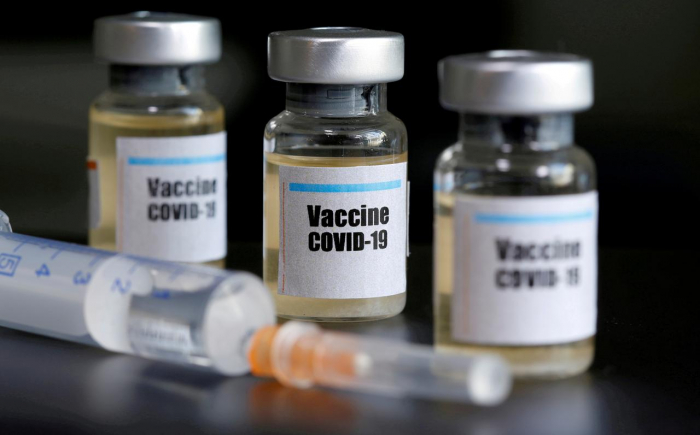The Oxford University/AstraZeneca vaccine will undergo a new global trial as critics questioned the claim that it could protect up to 90% of people against coronavirus.
On Thursday Sir John Bell, Oxford’s regius professor of medicine and the UK government’s life sciences adviser, dismissed suggestions the previous trial had not been properly set up or reported. “We weren’t cooking this up as we went along,” he said, adding that he hoped the full, peer-reviewed data would be published in the Lancet medical journal at the weekend.
In spite of the public excitement generated by the announcement that a third vaccine had been successful – with particular promise for developing countries as it is relatively cheap and can be stored at fridge temperature – AstraZeneca’s share price dropped.
One analyst in the US wrote in an investor note that “we believe that this product will never be licensed in the US” and alleged the company had tried to “embellish” the results.
However the UK government has asked the Medicines and Healthcare products Regulatory Agency (MHRA), the body which licences vaccines in Britain, to start the approval process for the jab. The health secretary, Matt Hancock, who has ordered 100m doses of the vaccine, which is a core part of plans to immunise the UK population, said: “We are working tirelessly to be in the best possible position to deploy a vaccine as soon as one is approved by the independent regulator the MHRA.”
The news of the global trial came after the headline figure for the vaccine’s overall efficacy was put at 70% – as announced by the company on Monday and discussed in a press briefing by the Oxford researchers. But a sub-set of fewer than 3,000 people in the UK was given a lower dose regime – originally by accident – where the efficacy rose to 90%. In most trial volunteers in Brazil and the UK, it was 62%.
Researchers had no explanation for the 90% result in people given a half dose followed by a whole dose of the vaccine, instead of two whole doses in other arms of the trial.
On Thursday AstraZeneca said it would undertake a new global trial using the lower-dose regimen. The timeline for regulatory approval and rollout of the vaccine in the UK and Europe should not be affected.
Critics have also claimed the trials did not include enough ethnic diversity, gender and age balance to satisfy the US regulator, the Food and Drug Administration.
Defending the vaccine trials, Bell told a symposium run by the Faculty of Pharmaceutical Medicine: “[The] MHRA knew perfectly well what we were doing. They approved all the protocols.”
It had been widely accepted before any of the vaccine trials reported results that 60% efficacy would be enough for a licence and would be useful, he said. “We are well in excess of that. I can’t imagine any reason why regulators won’t accept that.”
America had not yet seen the full data, he said, which he hoped would be published in the Lancet at the weekend. “I think when they see the data, it will be a great deal easier to have these conversations.”
Scientists at Oxford and the company admitted they were surprised by the finding that a lower dosing regime got better results. Pangalos called it serendipity.
Prof Sarah Gilbert, who led the vaccine research at Oxford, said: “It could be that by giving a small amount of the vaccine to start with and following up with a big amount, that’s a better way of kicking the immune system into action and giving us the strongest immune response and the most effective immune response.”
AstraZeneca’s CEO told Bloomberg it would begin an international trial using the lower-dose regimen, while previously it had been expected merely to add an arm to the existing trial in the US.
The move will be seen as a bid to satisfy the FDA and compete, if it does win a licence in the US, with Pfizer and Moderna, which have both published data suggesting 95% efficacy.
“Now that we’ve found what looks like a better efficacy [in the half dose/full dose regime], we have to validate this, so we need to do an additional study,” CEO Pascal Soriot said on Thursday. The study would probably be global “but this one could be faster because we know the efficacy is high so we need a smaller number of patients”.
Peter Openshaw, professor of experimental medicine at Imperial College London, said more data would need to be collected if the low-dose arm of the trial included only under-55s.
“If this is true, it may mean we don’t have any information about this regimen in older adults,” he said. “We have to wait for the full data and to see how the regulators view the results of the phase 3 trials. The US and European regulators might possibly take a different view. All we have to go on is a limited data release.”
It was possible, he said, that the protection from the Oxford/AstraZeneca vaccine might be less than that from the Pfizer/BioNTech and Moderna vaccines, which were developed with a different technology based on RNA, “but we need to wait and see”.
Paul Hunter, professor in medicine at the University of East Anglia and an adviser on methodology to the World Health Organization, said he was always wary of sub-group analyses in trials.
“Most of the time when you get these incredibly good results in a sub-group analysis, you have to be incredibly careful about believing them,” he told the Guardian. There could be something about the smaller group that was not true of the larger group.
He was also worried by the suggestion the sub-group had nobody over 55. “I’m not saying this isn’t going to be a fantastic vaccine at the end of the day, but we need a lot better understanding of the data,” he said.
An AstraZeneca spokesperson said an independent data safety monitoring board ensures the safety and quality of the trials. “The studies were conducted to the highest standards,” it said in a statement. “More data will continue to accumulate and additional analysis will be conducted refining the efficacy reading and establishing the duration of protection.”
The Guardian
More about:















































